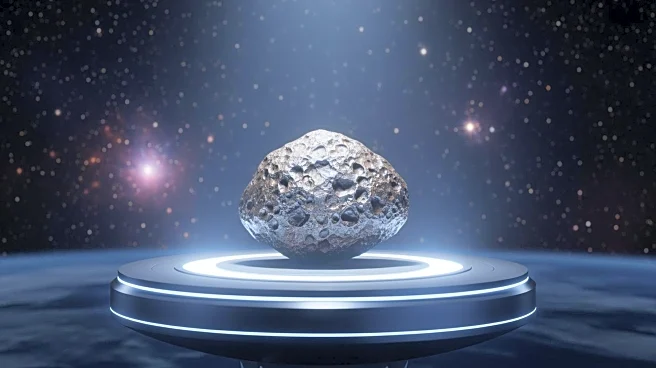What's Happening?
Researchers from the Massachusetts Institute of Technology (MIT) have uncovered rare traces of 'proto Earth,' the ancient precursor to our planet, dating back approximately 4.5 billion years. This discovery
challenges previous assumptions that the original chemical identity of Earth was completely erased following a massive collision with a Mars-sized body. The research, published in Nature Geosciences, reveals a unique chemical signature in ancient rock samples, characterized by an imbalance in potassium isotopes. This anomaly suggests that portions of proto Earth's material have survived the planet's violent reshaping. The study involved analyzing meteorites and deep rock samples from Greenland, Canada, and Hawaii, revealing a deficit in the potassium-40 isotope, which is distinct from most materials found on Earth today.
Why It's Important?
The discovery of proto Earth's traces is significant as it provides a new perspective on the planet's formation and the early solar system's chemistry. Understanding the original composition of Earth can offer insights into the building blocks of the solar system and the processes that led to the formation of planets. This research could influence future studies in geology and planetary science, potentially aiding in the reconstruction of Earth's early history. The findings also highlight the need for a more comprehensive inventory of meteorites to fully understand Earth's origins, suggesting that current collections may be incomplete.
What's Next?
The research team plans to continue their investigations into Earth's early materials, potentially leading to the discovery of new meteorites that match the proto Earth signature. Further studies may focus on refining the simulations of Earth's chemical evolution and exploring other isotopic anomalies that could provide additional clues about the planet's formation. The findings may also prompt collaborations with other institutions to expand the search for ancient materials and improve the understanding of planetary formation processes.
Beyond the Headlines
This discovery raises questions about the completeness of current meteorite inventories and the potential existence of undiscovered materials that contributed to Earth's formation. The research underscores the complexity of planetary evolution and the challenges in tracing the chemical history of Earth. It also highlights the importance of interdisciplinary approaches in uncovering the mysteries of the solar system's origins.










